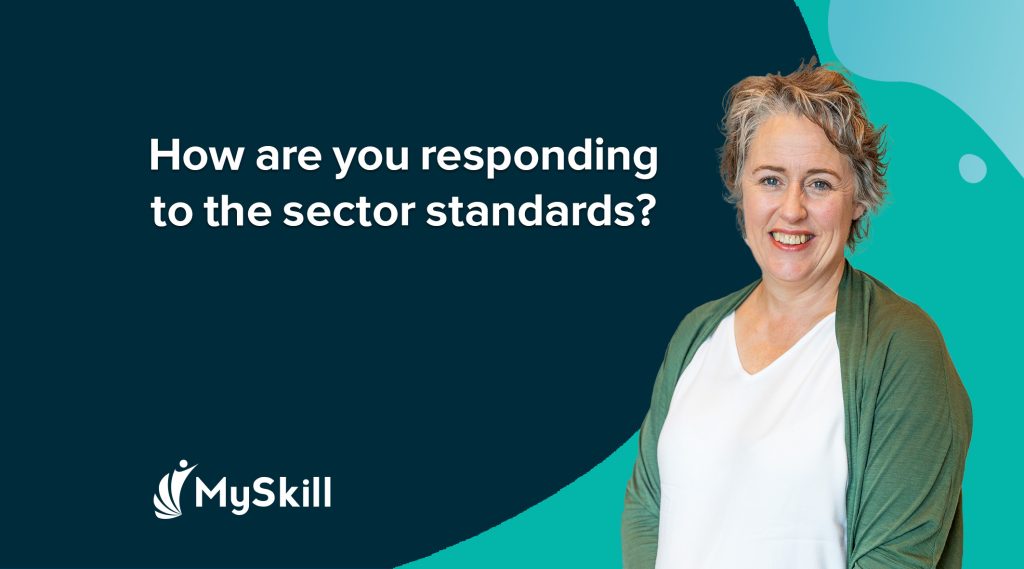At MySkill, one of our top priorities is ensuring that all training is up to date and aligned with sector standards. In practical terms, this means that we routinely take time to review and reflect on how we’re meeting our contractual, legislative, and sector standard training requirements.
The latest annual review evaluating MySkill’s training against sector standards was completed this past October. This review directly supports the prioritization of our training development while giving the team at MySkill a tighter focus on what we need to monitor via our regular reporting.
Our October review highlighted two particular areas of interest:
- Defining ‘appropriate training’
Wording like “receives appropriate training for the service provided”, “covers the essential components” and “appropriate training for the degree of risk” is found throughout the standard. This means that each employer needs to decide what kind of training is appropriate for each individual circumstance, and to provide evidence to support their decision. The MySkill team works collaboratively with Clinical Governance and Quality teams to determine risk and appropriateness. Through this, the MySkill team has the chance to:
- build a more efficient training pipeline. This often involves moving roles to work at the top of their scope, as this can free up nurses to focus on more complex tasks. As an example: training support workers to observe medication administration.
- design new training which is better suited to the current needs of our sector, and put policies in place which clearly identify which roles require only eLearning/knowledge to remain safe, reducing the need for more expensive face-to-face training.
- The impact of COVID-19 on training
In particular, we noted the increased backlog of people who are waiting to attend traditional face-to-face training, as well as the fact that many are encountering longer wait times to get practical sign off in clinical competencies. As our team noticed these impacts emerging, MySkill sprang into action to review our current processes and quickly implement innovative tech-based solutions.
While not all of these initiatives were a success, a number of them (like having infection control observation performed via video, for example) were very successful, and we’ll be carrying these on going forward. In the end, we learned that by being agile and learner-led, MySkill was able to implement more cost-effective practices while keeping quality high.
MySkill’s 2022 Action Points
Whenever we need to make changes in our approach to training, the MySkill team ensures that we have well documented plans and evidence supporting our reasons for change. This enables us to have in-depth, well-reasoned discussions with sector auditors over the course of the year.
Te Tiriti o Waitangi and Te ao Māori
(Clauses 1.4.4; 1.4.5)
- Design and implement a more dedicated Te Tiriti o Waitangi training programme to replace current training (In Development)
- At all training content reviews, continue to embed te ao Māori into the content (Ongoing)
Record of Learning
(Clause 2.3.4)
- Complete the sharing of data on support worker competencies between all client management systems (In Development)
- Build the tech capability to enable other employers to opt-in to automatically sharing data between MySkill and their own client management systems (Complete)
First Aid Training
(Clause 4.2.4)
- Implement the New Zealand Health Group-wide First Aid Training Policy (Complete)
- Create disability and community health focused first aid training, ensuring that an eLearning option is available (Complete)
Supporting People with Behaviours of Concern
(Clause 6.1.6)
- Partner with the behaviour support service Explore Specialist Advice and design eLearning to replace current introduction package; review current Level 3 Positive Behaviour Support unit standard and look to replace MAPA (In Development)
Need some help to quantify the ways in which you’re meeting sector training requirements? The MySkill team is here to help



